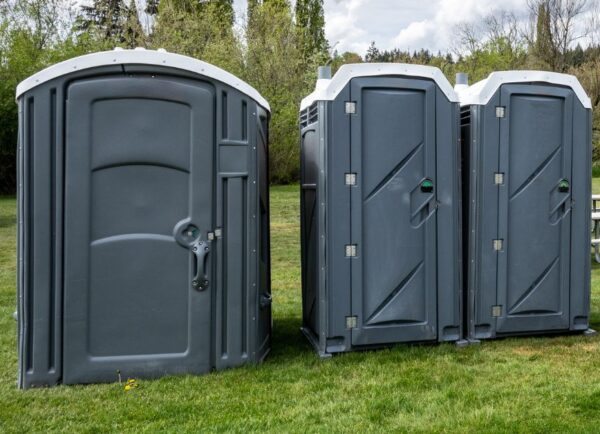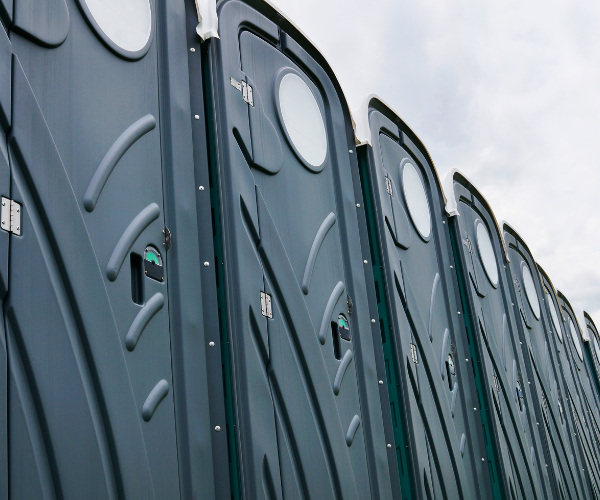Portable Toilets are increasingly recognized for their eco-friendly benefits, which can significantly impact both events and construction sites in a positive manner. First and foremost, these units are designed to conserve water, primarily using a limited amount of water per use compared to traditional restrooms. This is especially advantageous in areas where water conservation is a priority, allowing for significant resource savings in the long term. Moreover, the chemicals used in portable toilets are specially formulated to break down waste efficiently, ensuring a more environmentally friendly process that reduces the need for frequent servicing and transportation, further minimizing carbon emissions associated with maintenance logistics. Many modern portable toilets also incorporate recycled materials in their design and construction, demonstrating a commitment to reducing waste and promoting sustainability. Additionally, they're capable of being easily relocated without the need for permanent infrastructure, making them an ideal, low-impact solution for temporary sites. In high-demand situations such as outdoor events or remote locations, the presence of portable toilets effectively reduces risks of environmental contamination by providing a controlled sanitation solution. Finally, the service providers managing these units often adhere to strict environmental guidelines ensuring waste is disposed of responsibly, thereby supporting ecological health. Choosing portable toilets not only supports sanitation needs but also aligns with sustainable practices that benefit our planet.

Portable Toilet Rentals in Newnan, Georgia
Call today for a free quote (770) 215-0134
Portable Toilet
Fast, Easy, & 100% Free To Get Started
Over 20 Years Of Excellence
Our Portable Toilet company in Newnan boasts over 20 years of community-rooted experience. We consistently deliver quality services tailored to meet the specific needs of our valued customers.
Unmatched Quality Service
Our company excels in delivering top-tier quality. We meticulously clean each Portable Toilet and deliver with precision, providing a hygienic solution tailored to every event.
Rapid and Dependable Delivery
We prioritize promptness, delivering all Portable Toilet rentals swiftly and dependably. With our efficient service, your event in Newnan, Georgia proceeds seamlessly, free from delays.
Reliable Portable Toilet Solutions in Newnan, Georgia
Call for a Free Quote Today
(770) 215-0134
At our Portable Toilet rental company based in Newnan, Georgia, we pride ourselves on offering dependable and reliable services. As a locally owned business, we understand the unique needs of our community and are committed to providing top-notch solutions. Our services cater to a variety of events including construction sites, parties, festivals, and weddings across Newnan and nearby areas. With a focus on hygiene and customer satisfaction, we ensure our portable toilets are well-maintained and delivered promptly. Choose us for hassle-free rentals and outstanding service tailored to enhance any occasion. Rest assured, our expert team is here to meet your sanitation needs, ensuring comfort and convenience for all your guests.


Our standard porta john rental units are durable and reliable for any commercial build site, housing development, public works project, or remodel job.Features include dome lighting, grated floors, and an “In-Use” locking mechanism for privacy and comfort. Regularly maintained, inspected, and cleaned by FusionSite at your location.

Developed as an alternative to full ADA-compliant restrooms, the Liberty is a spacious, wheelchair-accessible unit that can also be promoted as a family-sized restroom. Includes a patented flat-floor system for easy wheelchair access and maneuverability.Handrails, paper holder, and rotary latch are designed for simple, intuitive end-user operation.

Portable hand washing stations are essential for keeping your work site sanitary and clean. Features hands-free foot pumps, liquid soap, and paper towels.Perfect for job sites without water hookups, these units can handle hundreds of washes between services.
We Proudly Serve
Standard Portable Toilets
Our Standard Portable Toilets provide comfortable and sanitary solutions across Georgia Container, ensuring convenience for any event.
High Rise Portable Toilets
High Rise Portable Toilets in Newnan cater to construction projects, offering convenient sanitation solutions atop multi-story sites.
Restroom Trailers
In Newnan, our Restroom Trailers offer luxury and comfort with spacious interiors and upscale amenities at Georgia Container.
Roll off Dumpsters
Roll off Dumpsters at Georgia Container provide efficient waste management solutions for Newnan's construction and renovation projects.
Septic Tank Cleaning
At Georgia Container, our Septic Tank Cleaning service ensures optimal operation of waste systems throughout Georgia.
Grease Trap Cleaning
Our Grease Trap Cleaning in Newnan ensures effective and hygienic waste management solutions for Georgia's businesses.
Fencing & Barricades
Our Fencing & Barricades service offers reliable containment solutions for events and construction sites in Georgia Container.
Residential Storage
Georgia's Residential Storage solutions in Newnan offer secure and accessible options for storing personal belongings.
Newnan Portable Toilet and More
Getting a quote and scheduling delivery for a Portable Toilet in Newnan has never been more convenient. Our user-friendly website allows you to seamlessly request pricing with just a few clicks. Simply fill out the online form with your basic information, and a dedicated team member will provide a detailed quote tailored to your needs. We take pride in our prompt responses, ensuring you receive the information you need without any delays. Once you've agreed on the terms, you can easily schedule delivery directly through our platform. Our efficient logistics team guarantees a timely arrival, bringing your rental to the specified location, whether it's a construction site, outdoor event, or wedding. We also offer flexible rental durations to suit any occasion, with options for long-term or short-term services. Experience the ease and professionalism that come with our comprehensive rental solutions, designed to prioritize customer satisfaction every step of the way.

Experience the charm of Newnan with our Portable Toilets that cater to local events and attractions. Known for its beautiful parks and vibrant community activities, Newnan hosts numerous outdoor events, such as the Summer Wined-Up and the Taste of Newnan, where sanitation solutions are essential. Our portable toilets provide a reliable and clean option for guests, ensuring their comfort and convenience. Whether it's a family gathering at First Avenue Park or a large festival by the historic Courthouse Square, our services are designed to meet the needs of Newnan's thriving community. With our commitment to quality and service, we enhance the guest experience by offering modern and well-maintained facilities. Choose our Portable Toilets for your next event and enjoy peace of mind knowing that everything is taken care of by professionals who understand the importance of cleanliness and reliability in public events. Our strong local presence ensures swift service and support, reflecting our dedication to enhancing life in Newnan.
Why are we the best choice in Newnan? Our Portable Toilet rental company stands out for a myriad of reasons, but chief among them is our unwavering commitment to customer satisfaction. We have built lasting relationships with Newnan residents and businesses, earning their trust through consistent, high-quality service. Our locally operated business not only supports the community's needs for portable sanitation but does so with a personal touch that only a neighborhood company can provide. We strive to make the rental process seamless, ensuring competitive pricing alongside unmatched quality. With a varied selection of portable restrooms, we cater to all types of events, allowing our clients to customize their orders to suit their specific requirements. Enjoy reliability, affordability, and personalized service that makes us the preferred Portable Toilet provider for Newnan and beyond.
Fast, reliable services are at the heart of our Portable Toilet offerings in Newnan. We understand that when planning events, timing is everything, and sanitation needs should never be a stress point. That's why we commit to prompt, on-time delivery wherever you require our facilities, ensuring that you can focus on what's truly important. Our dedicated team is always on standby to respond quickly to requests, maintaining a fleet of well-maintained units ready for any occasion, whether it be a construction project or a large outdoor festival. Our clients come to count on us not just for products but for peace of mind. With our reputation for excellence in reliability and speed, we continually work to enhance our services and keep up with the growing needs of the Newnan community. Trust us for your portable sanitation needs and experience the simplicity of fast, reliable service delivered with care and professionalism.
Discover Newnan's Portable Toilet Options
Renting a Portable Toilet in Newnan is a streamlined process designed for ease and efficiency. To get started, simply navigate to our website where you'll find forms located conveniently at the top and bottom of the page, as well as several 'Get A Quote' buttons prominently displayed throughout. Clicking these will guide you to a form where you'll need to provide your first and last name, phone number, and email address to receive a detailed quote. This intuitive system ensures that prospective clients can swiftly and easily connect with us to obtain precise pricing that meets their specific needs. Once your information is submitted, our team will promptly reach out to discuss your requirements, ensuring a tailored service that suits the scope and scale of your event or project. We're dedicated to providing attentive customer service, aiding in the selection of the ideal portable toilet options for your unique circumstances. Moreover, our team can assist with clarifying any additional services you might require, such as portable sinks or luxury restroom trailers. Count on us to seamlessly facilitate your rental process, ensuring you're well-prepared for your upcoming event or project with the necessary sanitation arrangements in place.
The typical delivery timeframe for Portable Toilet orders can vary based on several factors, including the location, quantity of units, and specific customer requirements. Generally, we strive for swift service, aiming to deliver your orders within 24 to 48 hours of confirmation. Our keen logistical coordination ensures that we efficiently manage delivery schedules, accommodating urgent requests whenever possible to support the diverse needs of our clients. For special events or large-scale projects, scheduling can be adjusted according to advanced planning arrangements, ensuring our resources align with your timeline seamlessly. It's important to communicate any specific timing requests when placing your order so that our service teams can tailor their delivery strategy to meet your demands effectively. By maintaining open lines of communication, we ensure that every aspect of your interaction with us—be it regular delivery or expedited service—is accomplished to your satisfaction. We prioritize flexibility and reliability, reinforcing our commitment to delivering quality portable sanitation solutions right when you need them. Our extensive experience in the industry equips us to navigate varied logistical challenges, ensuring prompt and professional service delivery under diverse conditions.
Yes, we proudly offer services for all types of events and construction services. Whether you're planning a vibrant festival, a competitive sporting event, or an elegant wedding, our portable sanitation solutions are perfectly suited to meet your diverse needs. From luxury restroom trailers to standard porta potties, we ensure that every guest or worker has access to clean and convenient facilities tailored to the occasion. In addition to toilets, we provide roll-off dumpsters, fencing and barricades, holding tanks, ADA-compliant units, portable sinks, and hand sanitizer stations, effectively equipping you for any event size or complexity. Our services are designed to support family reunions, corporate gatherings, special events, and major public functions, each with the utmost attention to detail and quality. By offering a broad range of customizable options, we empower you to create the ideal setup with our expertise and resources backing your event infrastructure. Our experienced service team ensures that logistics, setup, and maintenance are handled seamlessly, providing peace of mind so you can focus on creating memorable experiences for all involved.

